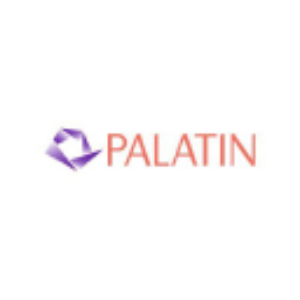Welcome to our dedicated page for Palatin Tech news (Ticker: PTN), a resource for investors and traders seeking the latest updates and insights on Palatin Tech stock.
Palatin Technologies, Inc. (PTN) is a biopharmaceutical innovator developing receptor-specific therapies for conditions with high unmet medical needs, including obesity, inflammatory diseases, and ocular disorders. This page provides investors and industry professionals with timely updates on the company’s clinical progress, regulatory milestones, and strategic initiatives.
Access comprehensive coverage of Palatin’s press releases and news articles, including updates on melanocortin receptor-targeted drug development, clinical trial results, and partnership announcements. Our curated repository ensures you stay informed about key developments in the company’s pipeline, such as PL8177 for ulcerative colitis and MC4R agonist programs for metabolic disorders.
Content spans regulatory filings, research collaborations, patent updates, and analysis of scientific presentations. Bookmark this page for streamlined access to verified information about Palatin’s advancements in peptide therapeutics and receptor modulation strategies. Check back regularly for objective reporting on how the company addresses complex medical challenges through precision drug development.
Palatin Technologies, Inc. (NYSE American: PTN) will announce its Q4 and FY 2022 operating results on September 22, 2022, before U.S. market opens. A conference call will follow at 11:00 a.m. ET to discuss results and updates on development programs. Investors can access the audio webcast via Palatin's website. The company focuses on first-in-class biopharmaceuticals targeting melanocortin receptor systems, aiming for collaborations to enhance commercial potential. For updates, visit palatin.com.
Palatin Technologies, Inc. (NYSE American: PTN) has initiated a Phase 2 clinical study of PL8177, a melanocortin-1 receptor agonist, aimed at treating active ulcerative colitis (UC). The trial will evaluate the drug's safety, tolerability, and efficacy in adult patients, enrolling up to 28 subjects across 22 sites. Following a successful Phase 1 study, where PL8177 showed promising results without systemic exposure, this Phase 2 trial is expected to yield interim results in early 2023 and final data by mid-2023. PL8177 targets inflammation in UC, a disease affecting about 1 million people in the U.S.
Palatin Technologies, Inc. (NYSE American: PTN) announced a 1-for-25 reverse stock split effective at 5:00 p.m. Eastern Time on August 30, 2022. Following the split, the number of outstanding shares will reduce from approximately 231.8 million to around 9.3 million. This move, approved by shareholders at the June 24, 2022 meeting, aims to enhance the stock's marketability. The reverse split will not change the company’s authorized share count, which remains at 300 million. Cash will be provided for any fractional shares resulting from the split.
Palatin Technologies, Inc. (PTN) announced a positive interim analysis from its Phase 3 MELODY-1 clinical trial of PL9643 for dry eye disease. The Independent Data Monitoring Committee (DMC) recommended continuing the study, aiming to enroll up to 350 patients, with an additional 230 required. No safety concerns were reported, and topline results are expected in the second quarter of 2023. PL9643 has shown potential as a fast-acting treatment for dry eye disease, which affects over 20 million people in the U.S.
Palatin Technologies (PTN) reported a significant uptick in fourth-quarter 2022 preliminary sales for Vyleesi®, the FDA-approved treatment for hypoactive sexual desire disorder in premenopausal women. Key metrics include a 225% increase in net product revenue and a 75% rise in gross product sales over the previous quarter. Total prescriptions dispensed grew by 45% quarter-over-quarter. These results highlight Vyleesi's growing demand in the female sexual healthcare market. However, the reported figures are preliminary and subject to change, which may impact investor perceptions.
Palatin Technologies, Inc. (PTN) reported notable quarterly results for Q3 FY 2022, ending March 31, with a net loss of $7.6 million, or $(0.03) per share. Vyleesi® sales saw a significant uptick, with gross sales rising 67% and net product revenue soaring 200% compared to the previous quarter. The company successfully closed a $15 million private placement of convertible preferred stock to enhance operational flexibility. Furthermore, patient enrollment for the Phase 3 study of PL9643 for dry eye disease is on track, with preliminary results anticipated in H2 2022.
Palatin Technologies, Inc. (NYSE American: PTN) announced a securities purchase agreement to issue 8.1 million shares of Series B and 900,000 shares of Series C convertible redeemable preferred stock at $1.67 per share. This transaction is expected to generate approximately $15 million in gross proceeds. Holders can convert these preferred shares into common stock at an initial price of $0.45 per share. The company plans to seek stockholder approval for a reverse stock split and will use the net proceeds for working capital and general corporate purposes.
Palatin Technologies will announce its Q3 fiscal year 2022 operating results on May 17, 2022, before the U.S. markets open. The company will also host a conference call at 11:00 a.m. ET the same day, reviewing the operating results and providing updates on ongoing programs. Access to the call will be available through the company's website. Palatin focuses on developing innovative biopharmaceutical products to address significant unmet medical needs.
Palatin Technologies (NYSE American: PTN) announced presentations at the ARVO 2022 Annual Conference in Denver from May 1-4. The posters highlight data from a Phase 2 study of PL9643 for treating dry eye disease (DED), revealing statistically significant improvements in symptoms after 2 and 12 weeks of dosing, with no safety concerns. A Phase 3 study (MELODY-1) is currently enrolling participants, with topline data expected in Q4 2022 and a potential NDA submission in H1 2024. These efforts underline Palatin's commitment to developing innovative therapies for significant unmet needs.
Palatin Technologies (NYSE American: PTN) presented at the Eyecelerator@ASCRS 2022 Conference in Washington D.C. on April 21, 2022. The presentation, led by CEO Carl Spana, focused on melanocortins' role in treating ocular diseases and shared Phase 2 results of PL9643 for Dry Eye Disease (DED). Positive outcomes were reported, showing significant improvement in symptoms with excellent ocular tolerability. The ongoing Phase 3 study (MELODY-1) aims to provide topline data in Q4 2022, with an NDA submission planned for early 2024.

